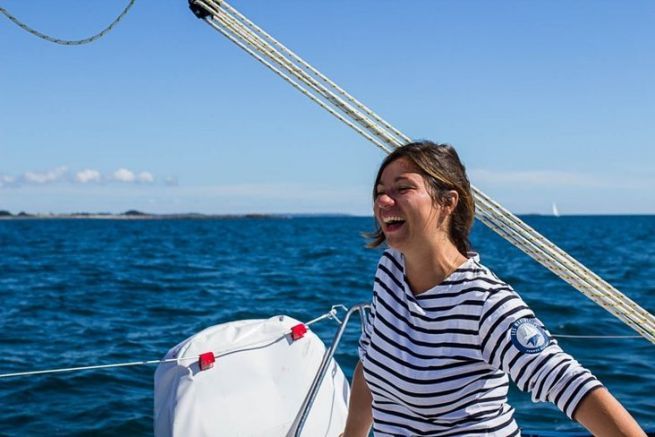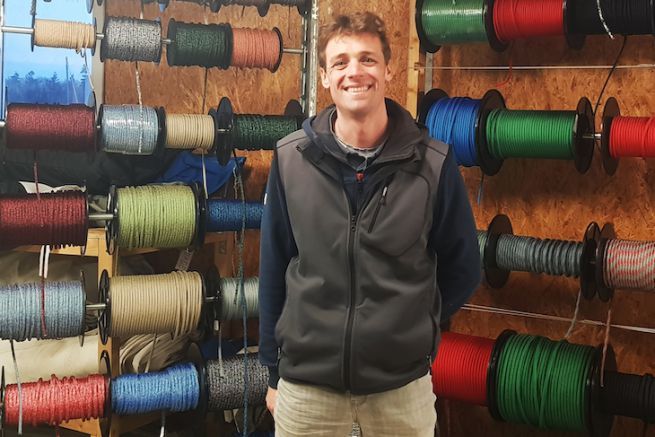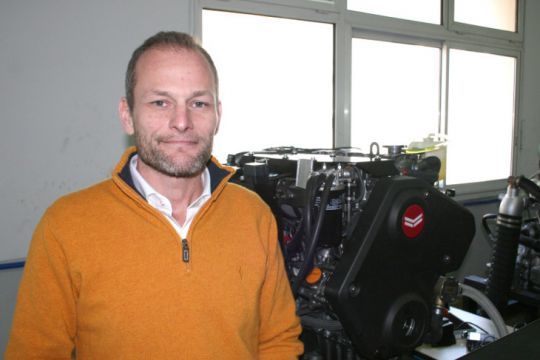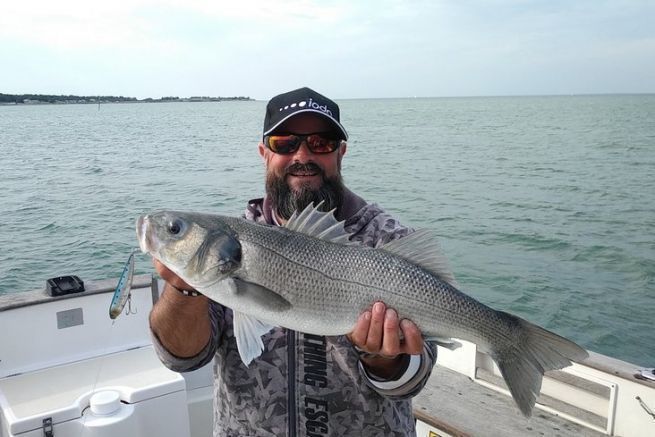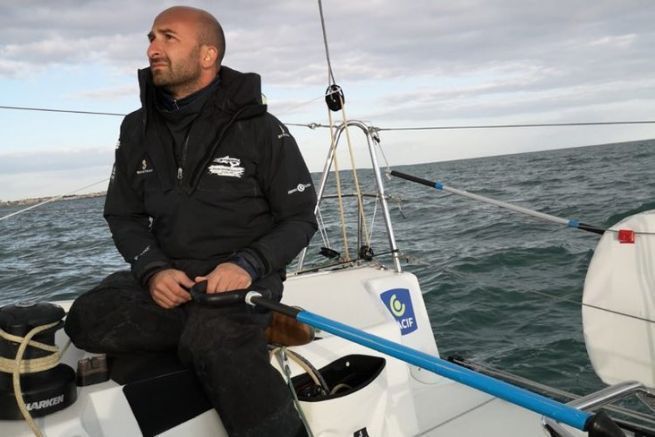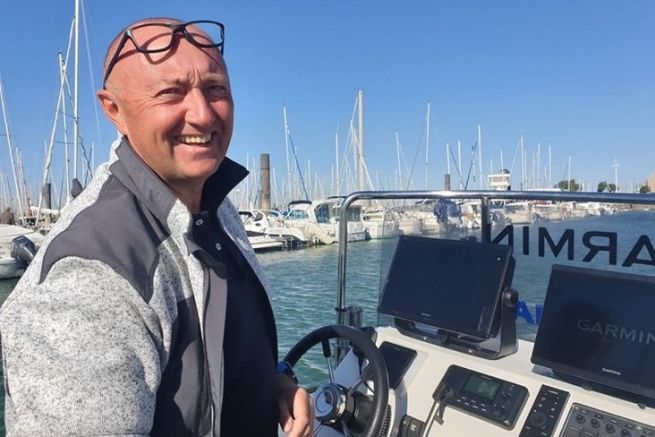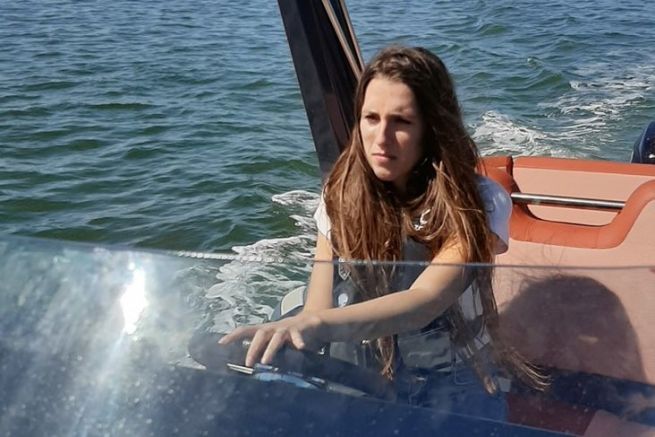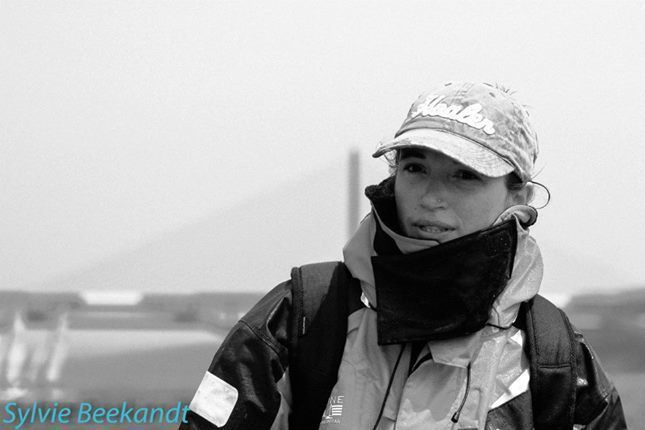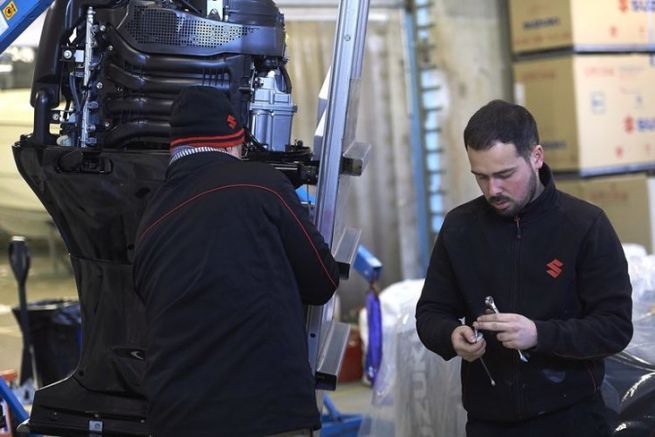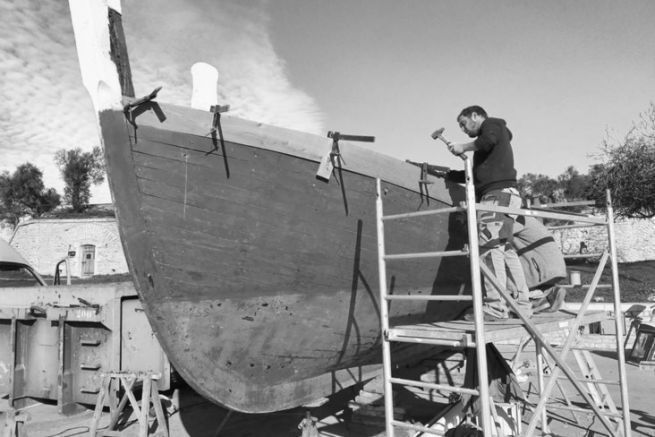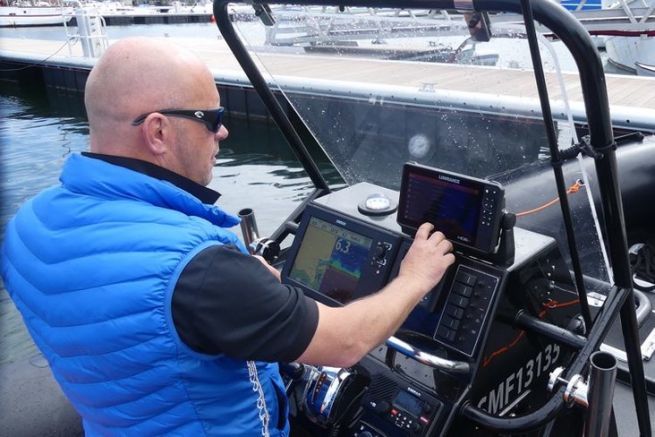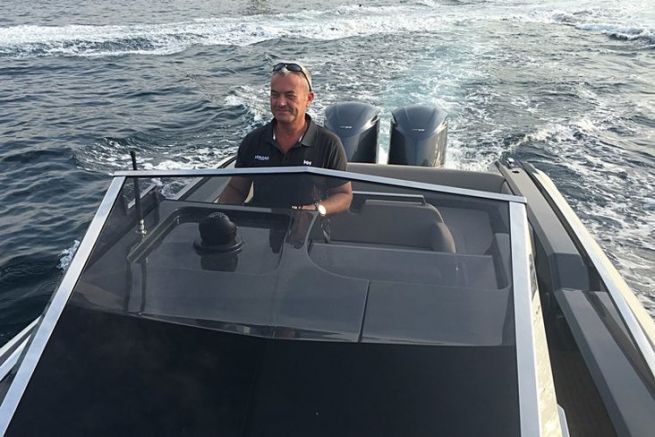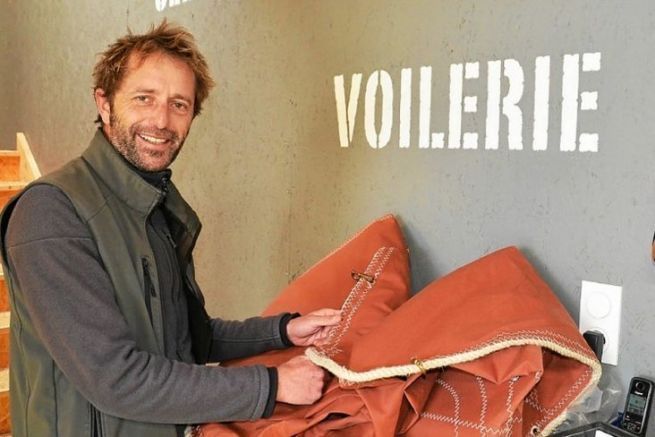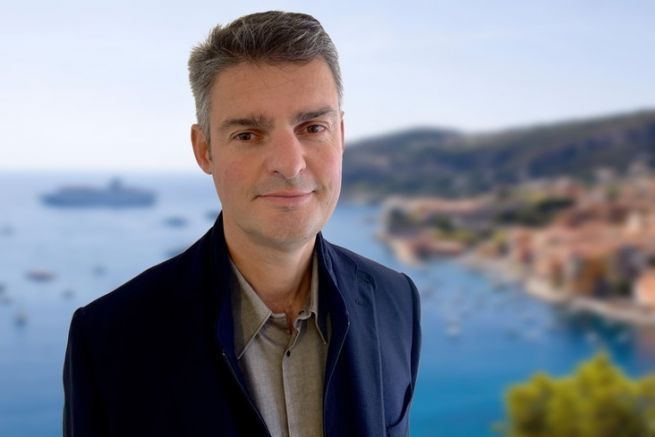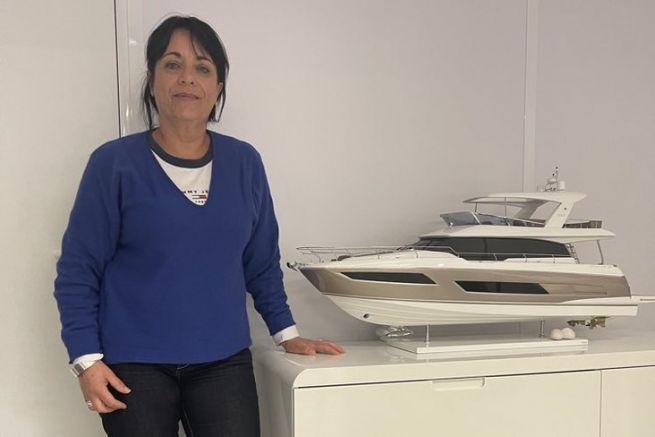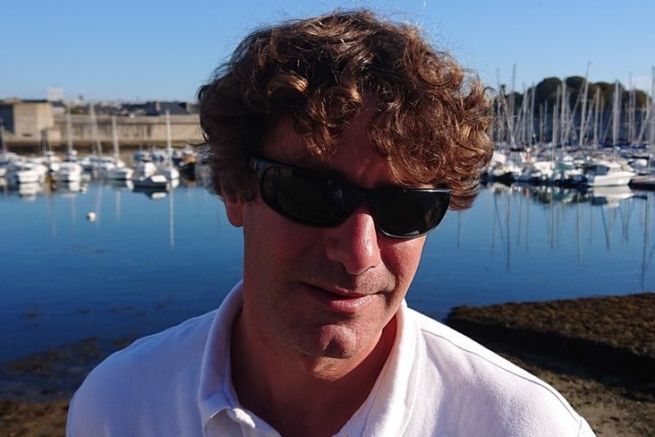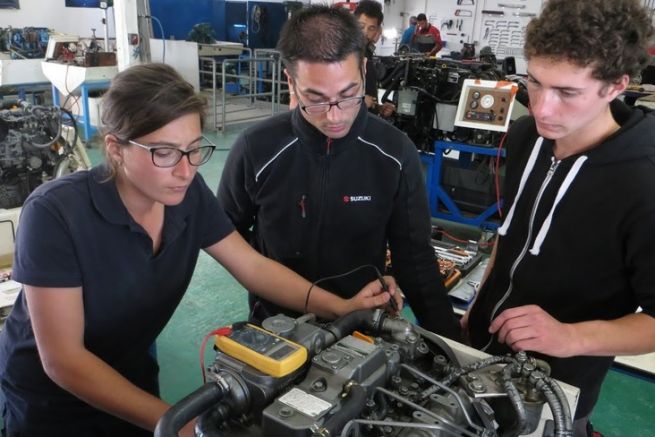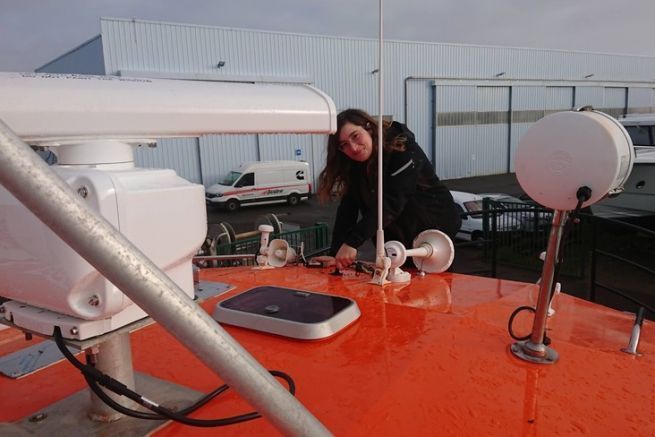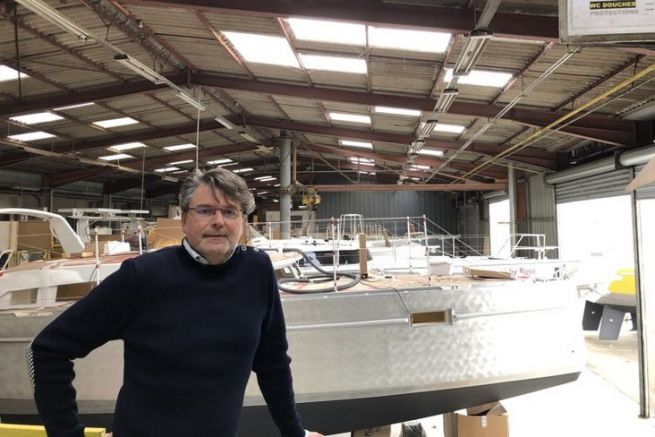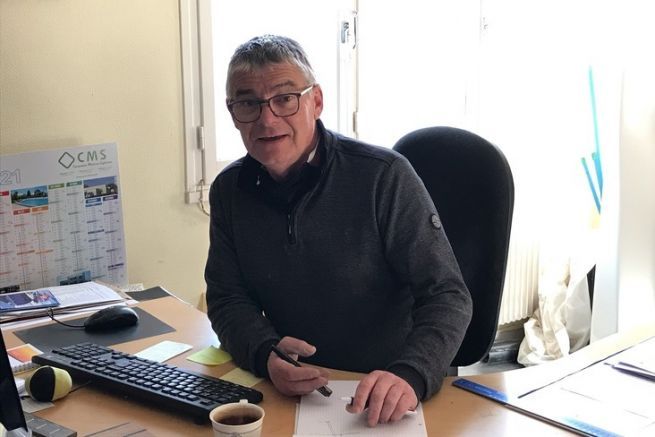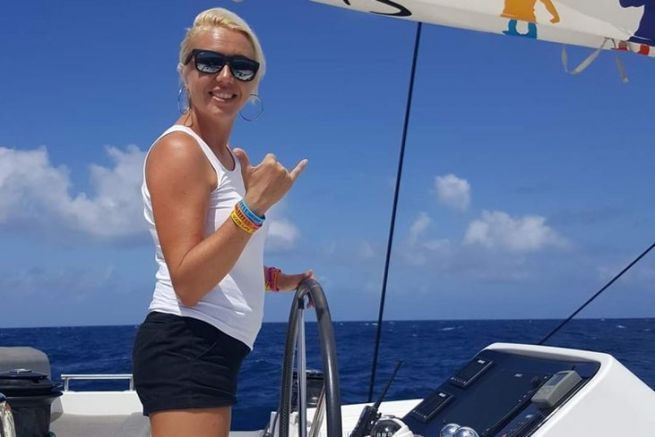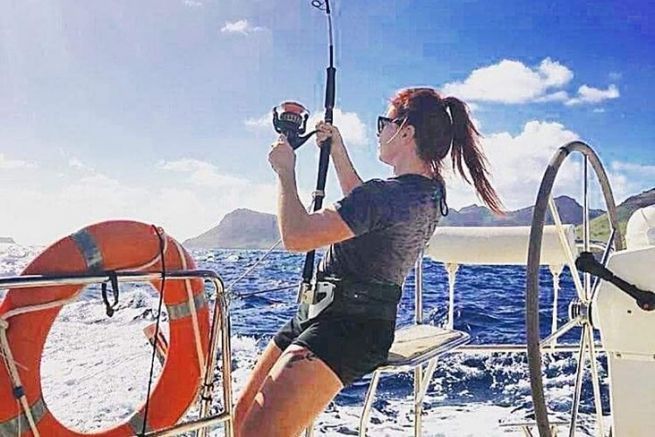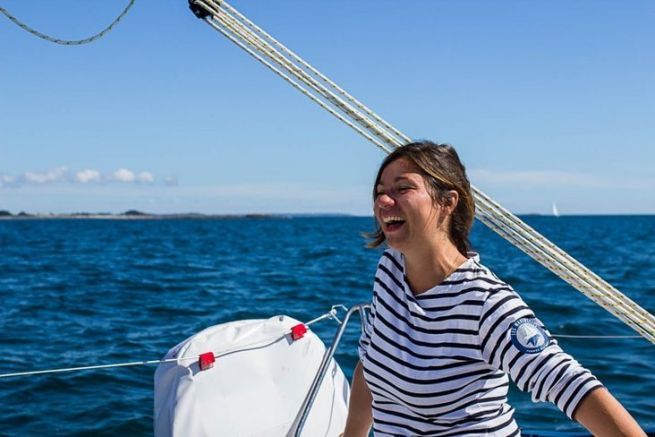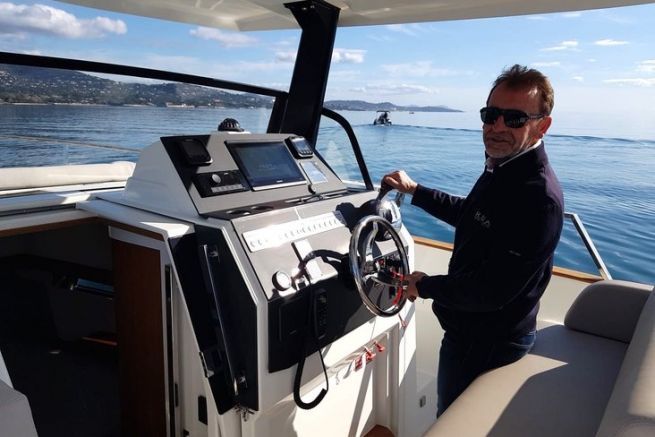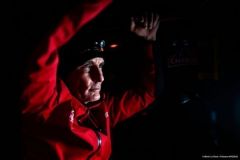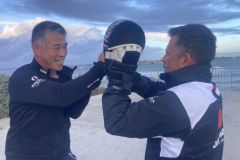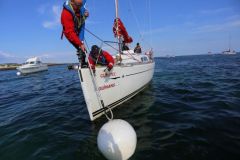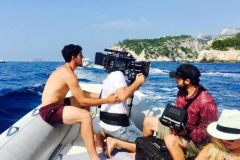The sailing coach is a real professional selected and certified by the French Sailing Federation, both an expert in sailing and a trainer who listens to boaters. Through training sessions often tailored to the needs of the sailor, their role and goal is to transmit to the sailors the right attitudes and skills to sail independently and safely.
To become a coach, you must first hold a state diploma allowing you to teach sailing (BEES, BPJEPS, DE, DES), and you must also have serious experience in sailing a sailboat. As with the majority of labels, this one must be renewed every year.
Julie's specialty: preparing women for long voyages and accompanying them in their learning process on board in order to help them find their place and preserve the harmony of the couple.
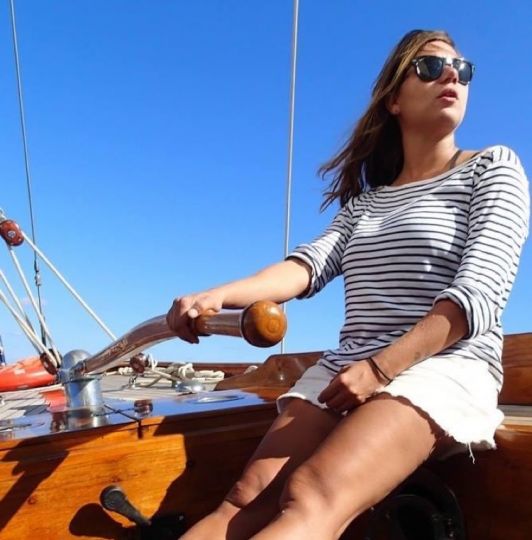
What training, what diploma, what skills are needed for the position?
Navigate, enjoy transmitting and training
"I don't come from a family of sailors, but at the age of 6 or 7 I fell in love with boats and started sailing Optimist. At the age of 9, I entered a sports school to follow a classic sports curriculum and sail on Laser. From that moment on, I never left the boat. During the summer vacations, I worked at the nautical base as a sailing instructor, mainly in Dunkirk, my home town, where the sailing school was my second home, which allowed me to have a first relationship with pedagogy and teaching."
While still a teenager, Julie remembers some funny memories of adult training courses, due to the machismo of some people. In 2009, at the age of 19, she passed the BPJEPS [Brevet professionnel de la jeunesse, de l'éducation populaire et du sport] sailing multisupport. Mainly oriented towards light sailing, this diploma has a thematic sailboat which offers Julie a better knowledge of this type of navigation, to get away from the coasts and encourage her to sail on the open sea.
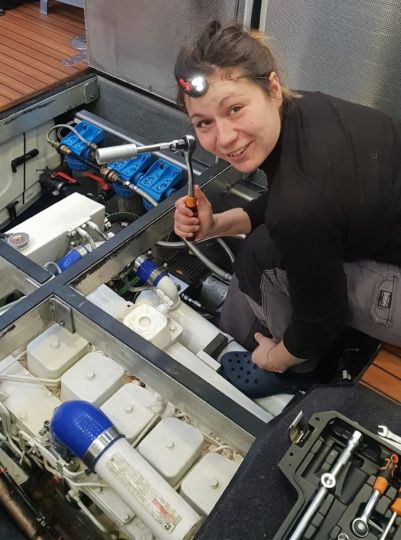
Julie continues to teach sailing in a sailing school with a tenacious desire for the open sea: "When you love the sea, you want to cross oceans", Julie insists.
Thanks to an acquaintance who was looking for a crew member, Julie embarked in 2011 for a transatlantic race on a trimaran. "In a few hours, I packed my bag, got on a train and left, without knowing the boat or the crew and having done little offshore sailing.
First transatlantic race: second love at first sight, I did not want to arrive, the boat was exactly where I wanted to be.
The skipper in charge of the delivery quickly realized that I was very comfortable on the water and with maneuvers, so I quickly maneuvered alone, learned to confront myself with the autonomy on a 45-foot boat, and perfected my technique. When I arrived in the Caribbean, under the sun, I took advantage of staying a few days with the crew."
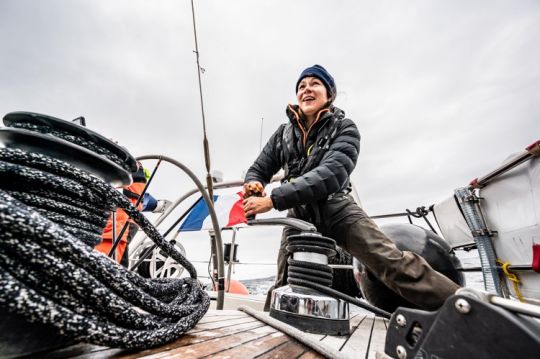
During these few days, the skipper was asked to take part in a new delivery trip from La Rochelle and offered Julie to be part of the crew. From that moment on, Julie never came ashore again:
"I got into sailing by the hardest way in my opinion, the delivery of pleasure boats is a rather thankless and hard job. This is what allowed me to have my legitimacy in this job, I had a lot of it during 3 years sailing and being rarely at home in Dunkerque. This experience of convoying made me identify that skipper was a job, to discover many countries and even navigation in the ice."
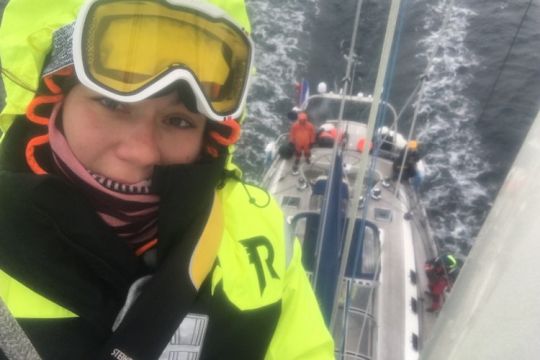
In 2015, in order to lead the convoying and to be the master on board, Julie, 24 years old, took the Captain 200 certificate, validated it quite quickly and took advantage of it to sail in regattas on classic sailboats for 3 years, a real pleasure for Julie to participate in these sporting events on magic boats despite the intensity of the physical effort to then leave on expeditions on different boats in the Great North.
"It's because of sailing that I said to myself: how come there are so few women on board. During my travels, I noticed that the approach to women's sailing and the roles they play on board differ from country to country. I wanted to synthesize my 10 years of experience to bring a different vision and to propose a training course focused on the human aspect.
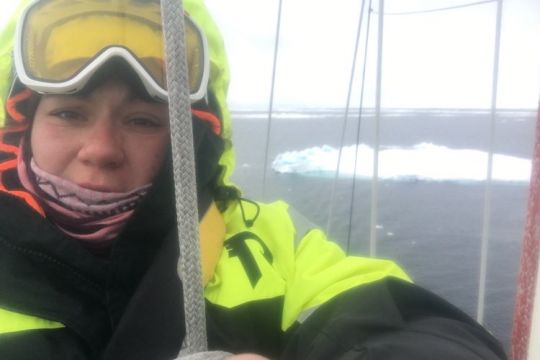
I met many couples who did not get along or did not understand each other on board, some sold the boat to save their relationship rather than continuing to sail," notes Julie.
"So I became a coach 2 years ago after obtaining the 'Coach Plaisance' label while continuing to sail in the winter in the Great North and this year I am focusing solely on the coaching business to meet the demand."
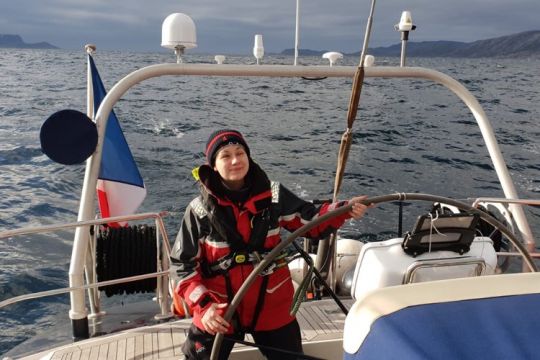
In addition to technical and pedagogical skills, "the job requires a high degree of adaptability, and in my case, the specificity of being a national itinerant, which offers the possibility of working in places, with people and on a boat that I don't know", explains Julie.
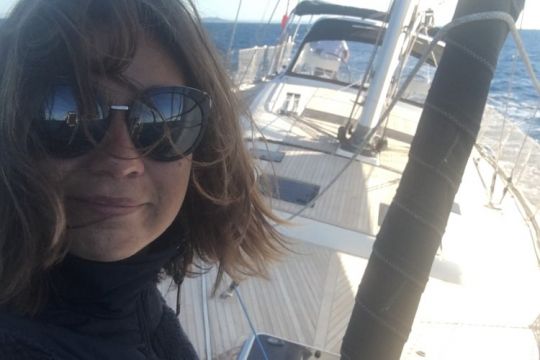
What is the daily life, what are the responsibilities of this profession?
Learn to share navigation safely
"The coaching formula that I offer as part of my business 'Les Marinettes' is spread over 4 days, first 3 days with the lady to teach her basic skills, gain confidence and be autonomous on maneuvers, then the last day I discuss with the couple how to communicate in navigation or maneuvering and especially trust each other. Most of the time, I coach couples who are used to sailing together on the coast. Mr. maneuvers and Mrs. follows as best she can, so I reverse the roles. Sometimes I have to deal with real sailing trauma."
Julie's responsibility is to make sure that the lady has her place on the boat and is able to take responsibility for the boat's maneuvers with a minimum of stress and above all to have fun. In addition to the success of a good coaching, as captain, Julie is obviously responsible for the safety of the people, the good condition of the boat, the sailing conditions, the weather..
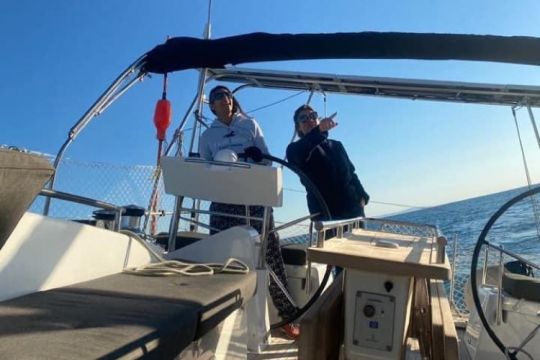
What are the possible evolutions of this profession?
Adapting the nautical world to gender diversity
"Beyond a profession, these are personal convictions, so the road is quite long, for example by creating a community of women sailors, setting up more specific actions to change mentalities and ensure that there is more gender diversity."
To allow women to find their place on board a boat or in a common project with their companion, their friends or family, Julie militates for a nautical world adapted to gender diversity.

 /
/ 